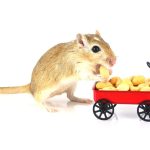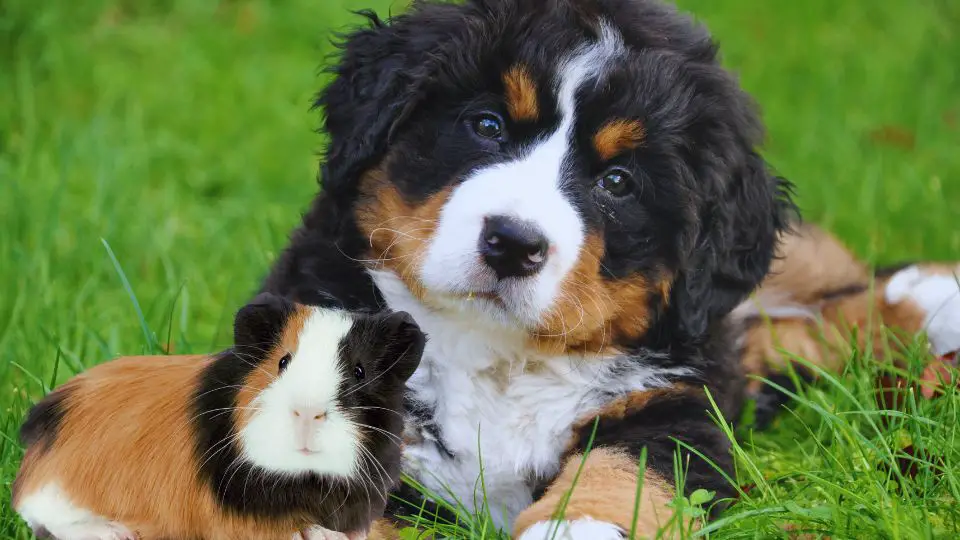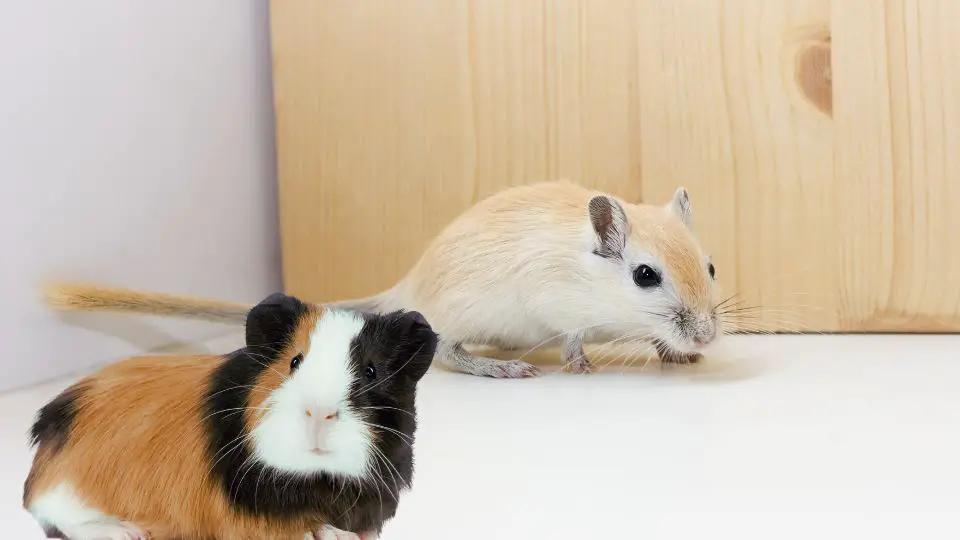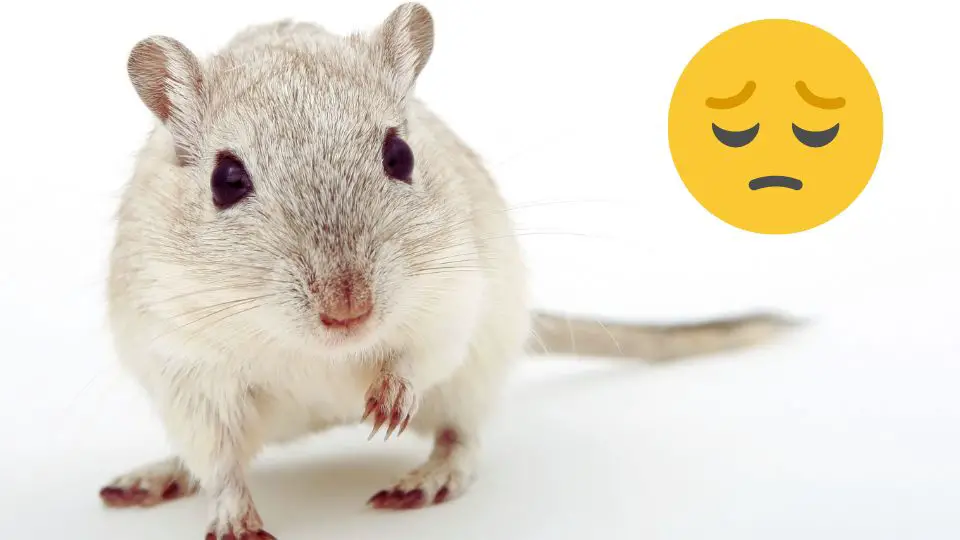In this article, we will discuss the aging process of gerbils and the changes that come with it. We will explore the size of gerbils, what to do when one gerbil dies, understanding the lifespan of a gerbil, and how to create a comfortable environment for an elderly gerbil.
We will also touch on the importance of providing a senior-friendly cage, providing appropriate diet and nutrition, and regular vet check-ups. This article will provide a comprehensive understanding of gerbil aging and the steps that can be taken to ensure their comfort and well-being as they age.
How Big is a Gerbil
Gerbils are small rodents that come in a variety of sizes and colors. Adult gerbils typically range from two to six inches in length, though some species may be larger or smaller than others. Generally speaking, males tend to be slightly larger than females. Most gerbil species will continue to grow until they reach sexual maturity at around four months old.
Factors That Can Affect Adult Size
There are several factors that can affect the size of adult gerbils. For example, diet plays an important role in determining a gerbil’s size. A nutritionally balanced diet of fresh fruits and vegetables can help ensure that your gerbil reaches its full potential size-wise.
Genetics also play a role as well; if your gerbil is bred from smaller parents, then it is likely to remain on the smaller side upon reaching adulthood. And last but least, the environment that your gerbil lives in can also affect its size. If your gerbil is cramped and not able to move around much, it can stunt its growth.
Understanding the Size of the Gerbil Species
When it comes to the different species of gerbils available, there is quite a bit of variation in terms of size. For example, Mongolian gerbils typically grow up to five inches long while Chinese striped hamsters usually only reach two inches in length. Additionally, fat-tailed dwarf hamsters (or “honey bears”) can reach six inches long when fully grown while Roborovski hamsters usually max out at two and a half inches in length when fully mature.
Understanding the size of your pet’s species is key to getting an accurate sense for how big he or she will eventually become as an adult. Fortunately for those who own them as pets, most gerbil species stay relatively small throughout their lives—which makes them perfect for any home with limited space! With proper care and nutrition (as well as plenty of love!) your little critter should remain healthy and happy for many years to come!
Understanding Gerbil Lifespan
Gerbils are small and active pets that are known for their intelligence and playful nature. They make great companions and can live for several years with proper care and attention. However, like all pets, gerbils have a limited lifespan, and it’s important for owners to understand how long gerbils typically live and what signs indicate that a gerbil is nearing the end of its life.
Understanding the lifespan of a gerbil and being aware of the signs that indicate a gerbil is nearing the end of its life are the first steps in providing proper care for your pet. With proper care and attention, gerbils can live for several years, but you must be prepared for the eventual loss of your pet.
The average lifespan of a gerbil is around 3-4 years but, with proper care and attention, gerbils can live up to 5 years. Note that the lifespan of a gerbil can be affected by factors such as genetics, diet, and environment.
As gerbils age, they may begin to show signs that indicate they are nearing the end of their life. These signs can include:
- Loss of appetite
- Loss of weight
- Lethargy or decreased activity
- Difficulty breathing
- Seizures
- Abnormal behavior or disposition
- An increase in age-related diseases
Importance of Seeking Veterinary Care
When a gerbil is nearing the end of its life, it’s important to seek veterinary care as soon as possible.
A veterinarian can provide a proper diagnosis and recommend treatment options, and can also help with end of life care for your gerbil. Early detection and treatment of illness or injury can improve the chances of survival and make the remaining time more comfortable for the gerbil.
Preparing for End of Life Care
Keeping a gerbil also means preparing for the end of life care for your little pet. This is an important step in ensuring that your pet is comfortable and well-cared for during its final days. Some steps that can be taken include:
- Providing a comfortable and safe environment
- Providing appropriate diet and nutrition
- Providing adequate socialization and mental stimulation
- Regular vet check-ups
Remember that you must be prepared for the emotional impact of losing a pet, and to allow yourself time to grieve.
Creating a Comfortable Environment for an Elderly Gerbil
As gerbils age, their needs and abilities may change. You have to understand these changes and make adjustments to ensure that an elderly gerbil is comfortable and well-cared for. One of the most important things to consider is the gerbil’s living environment.
Providing a comfortable and safe environment for an elderly gerbil is essential for its well-being. Gerbils are naturally active and curious creatures, and a comfortable environment will help to keep them engaged and happy. A safe environment will also help to prevent accidents and injuries, which can be more common in elderly gerbils.
Tips for Creating a Senior-Friendly Cage
Creating a senior-friendly cage for an elderly gerbil involves making adjustments to the cage and its contents. Some tips for creating a senior-friendly cage include:
- Providing a larger cage with more floor space
- Adding ramps or other climbing structures to make it easier for the gerbil to move around
- Providing a soft bedding material for added comfort
- Providing adequate heating and lighting
- Making sure the cage is easily accessible for cleaning and maintenance
Proper diet and nutrition are also important for maintaining the health of an elderly gerbil. As gerbils age, their dietary needs may change, and you’ll have to make sure they are getting the proper nutrition to support their health. Some things to consider when creating a diet for an elderly gerbil include:
- Providing a high-quality commercial gerbil diet
- Adding fresh fruits and vegetables to the diet
- Providing a source of calcium, such as crushed eggshells or cuttlebone
- Avoiding foods that are high in sugar or fat
Providing Adequate Socialization and Mental Stimulation
Gerbils are social animals and thrive on interaction and stimulation. As gerbils age, their ability to move around and explore their environment may be limited, so you have to provide them with other ways to stay engaged and active. Some ways to provide socialization and mental stimulation for an elderly gerbil include:
- Providing interactive toys such as tunnels and mazes
- Providing a companion gerbil
- Setting up a playpen or exercise area outside of the cage
Importance of Regular Vet Check-ups
Regular vet check-ups are important for maintaining the health of an elderly gerbil. Gerbils are prone to certain age-related diseases, such as tumors and kidney disease, and regular check-ups can help to detect these conditions early, making them more treatable.
What to Do When One Gerbil Dies
Losing a beloved pet is never easy and it can be particularly difficult to cope with the loss. But you’ll have to take some steps in order to ensure your surviving gerbil(s) will be okay.
Start by removing the body of the deceased gerbil and providing your remaining pet with extra comfort and attention. You should also sanitize the cage to avoid any possible danger of disease to the surviving gerbil.
After that, the first step to dealing with the loss of a gerbil is to understand its cause of death. If your gerbil died suddenly and you’re uncertain about why, it’s a good idea to take it to an experienced veterinarian for a necropsy (animal autopsy).
This will help you determine whether or not there was an underlying health issue that caused its death. Knowing what happened (and why) can be incredibly helpful in preventing any further losses in the future. Common causes of gerbil death include old age, disease, injury, and even captivity.
Once you have a better understanding of the cause of death, make sure that your surviving gerbil is receiving the care and attention it needs.
Monitoring the Remaining Gerbils
If you had more than one gerbil living together, keep an eye on the remaining ones for any signs of distress or illness.
It’s common for gerbils who have lost their cage mate to become withdrawn or depressed—so make sure they’re eating and drinking normally, interacting with their environment, and playing with toys as usual. If you notice any changes in their behavior, contact your vet right away for advice and treatment options.
Finally, it’s important to remember that although the loss of a gerbil can be devastating, your remaining furry friend still needs love and attention. So, be sure to spend some quality time with them, show them some extra TLC, and know that they’ll be alright. Your gerbil may never forget their friend—but with time and patience, they’ll eventually adjust to the change.
How do you take care of a lone gerbil?
If you had 2 gerbils and one died, you should consider the welfare of your remaining gerbil. Gerbils are extremely social animals and need companionship in order to stay healthy and happy. As such, we recommend to get your gerbil a companion as soon as possible.
In the meantime, however, there are some steps you can take to help your gerbil adjust. Make sure that you spend quality time with them daily, give them plenty of attention, and provide them with sensory enrichment in the form of interactive toys, puzzles, and play tunnels.
You should also keep their cage clean and hygienic, and provide them with plenty of fresh food and water. And lastly, make sure to take your gerbil for regular vet check-ups to ensure their health and well-being.
Introducing a New Gerbil
If you decide that introducing another gerbil into your home is the best option for your remaining pet(s), do some research ahead of time about how best to go about doing this safely and successfully.
Introducing two unfamiliar animals can be tricky; so it may be wise to look into adopting siblings from the same litter if possible, or setting up “neutral zones” that allow them to get used to each other gradually over time without feeling threatened or intimidated.
Providing Adequate Socialization and Mental Stimulation
No matter how many gerbils you have living together, it’s important that they all receive enough mental stimulation and socialization—particularly if they live alone in their cage most of the time without any human interaction throughout the day.
Make sure there are enough toys available that encourage natural behaviors like burrowing, hiding, and exploring; as well as plenty of chew sticks/toys made out of safe materials like wood or cardboard! Also, consider taking them out each day for some supervised playtime outside their cage so they can explore different environments and interact with people too!
Give yourself time to grieve
It’s normal to feel sad and overwhelmed after losing a beloved pet, so don’t be afraid to give yourself time to grieve. Talk about your loss with friends or family, and find ways to honor your gerbil’s memory.
Children may find it especially difficult to process their grief, so be sure to talk them through the process and let them know that it’s okay to feel sad. You can make a scrapbook together, create a memorial for your gerbil, or even hold a small funeral.
No matter what you decide to do, the important thing is that it helps you cope with the loss and move forward. Remember, your pet gave you so much joy, and that should be celebrated. Taking it to an experienced veterinarian for a necropsy can be a great way to start the healing process. It may not be easy, but it can help provide closure and give you the peace of mind of knowing what happened – and how to prevent any further losses in the future.
Wrapping all up
The death of a pet is always difficult. But with appropriate care and understanding, it is possible to both mourn their loss and celebrate the joy they brought into our lives. Furthermore, if you have other gerbils living together, make sure to monitor them carefully for signs of distress or illness and take steps to ensure that their mental stimulation and socialization needs are met.
Finally, if you decide to introduce another gerbil into your home, do your research beforehand to make sure it’s done safely and successfully. All in all, looking after a small furry friend can be challenging but ultimately very rewarding – so don’t forget to show them some extra love!







